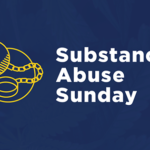Teen suicide has become an epidemic in Texas. It is now the second-most-prevalent cause of death for Texas adolescents, passing homicide for the first time.
While most teen suicides involve depression, anxiety, drug or alcohol abuse, relationship struggles, or sexual or physical abuse, Texas communities are experiencing a recent rash of suicides caused by bullying and cyberbullying. Bullies are using online forums to terrorize their classmates without fear of punishment. Across the United States today, more than one-third of teens admit they have been cyber bullied or know someone who has, the Dallas Morning News reports.
Stories of bully-induced teen suicides in Texas are becoming commonplace.
In February, Devin Raynor, 15, a freshman at Rogers High School and active at First Baptist Church of Rogers, shot and killed himself after being bullied at school.
In October, a Hebronville teen, Natalie Rodriguez, 15, took an overdose of pills that resulted in her death. The eighth grader at Hebronville Middle School had been bullied ruthlessly online and at school.
In November, Brandi Vela, 18, a student at Texas City High School, shot and killed herself after months of enduring cyberbullying. Her online abusers, Andres Arturo Villagomez, 21, and Karinthya Sanchez Romero, 22, have been arrested and charged with promotion of intimate visual material and stalking.
Ninety days later, in February, a second teen girl at Texas City High School killed herself. Bailie Lundy, 15, a member of Greater Barbour’s Chapel Baptist Church, hanged herself in a nearby park. Like Brandi, Bailie had endured relentless cyberbullying from school classmates.
What is cyberbullying?
Cyberbullying is when a child, preteen or teen is tormented, threatened, harassed, humiliated, embarrassed or targeted by another child, preteen or teen using electronic technology such as cell phones, computers and tablets using social media sites, text messages, chat and websites. This type of bullying especially is difficult for teens because:
Sign up for our weekly edition and get all our headlines in your inbox on Thursdays
- It can happen 24 hours a day, seven days a week.
- Messages and images can be posted anonymously and distributed quickly and widely.
- Messages and images cannot be deleted easily after posting.
After a 16-year-old sophomore from San Antonio, David Molak, killed himself after prolonged social media bullying by classmates, Texas lawmakers proposed a new cyberbullying law. If approved, David’s Law—named after Molak—will require all Texas schools to establish anti-bullying policies and to contact parents within 24 hours of their child being bullied. The law also will make cyberbullying a punishable crime and allow law enforcement to get subpoenas to unmask anonymous cyber bullies.
How Texas churches can help prevent teen suicide
While some teen suicides are impossible to prevent, most are believed to be preventable. Congregations can be instrumental in efforts to help prevent teen suicide and cyberbullying within their communities. Here are some suggestions:
- Take opportunities to preach and teach—from the pulpit and in Bible study classes—on the value of God-created life, the effects of cyberbullying and the tragedy of teen suicide.
- Build strong children and youth programs that create safe and welcoming environments for the church’s young people to meet, talk, learn and fellowship. Encourage your youth to talk about cyberbullying. Pray with and for your young people.
- Invite Christian professionals to speak to your congregation, offering classes to build healthy family relationships and seminars dealing with depression, cyberbullying, teen suicide, etc.
- Require pastors of children/youth to take mental health first-aid training. Teach them to know what’s happening among their young people; to recognize the signs of cyberbullying, depression and potential teen suicide; and to respond appropriately.
- Create a network and updated list of trusted mental-health professionals and resources for immediate referral.
If, in spite of your efforts, teen suicide occurs within your congregation, take action immediately:
- Minister to grieving family and church members, showing them the love of Christ. Be a patient presence, praying with those affected. Refer them to Christian grief counselors and others for help.
- Bring together church and community members. Invite professionals to speak, addressing the suicide and its cause. Mourn the loss of the victim. Hold a remembrance service in his or her honor. Be available to help family members arrange funeral/burial arrangements.
- Watch for signs of copy-cat or clustered suicides. Teen suicide often can trigger tendencies that cause others to imitate the tragic act.
Suicide warning signs
Every day in our nation, 5,240 young people in grades 7 to 12 attempt suicide.
Studies show four out of five teens who attempt suicide have given clear warning signs. Take action when a child or teen:
- Endures bullying and/or cyberbullying
- Expresses suicidal thoughts
- Shows increased irritability, loss of concentration/motivation
- Withdraws from family and friends
- Experiences a drop in grades
- Is unable to sleep and/or eat
- Loses interest in personal appearance and favorite activities
- Shows signs of depression; one in every 11 teens will develop depression
- Abuses alcohol and drugs
- Is involved in abusive dating relationships
- Frequently runs away or is arrested/incarcerated
- Loses family members or experiences problems with parents
- Has an unplanned pregnancy
- Shows impulsive, aggressive behavior and frequent expressions of rage
Responding to potential suicide
If someone mentions or shows signs of suicide:
- Do not leave the person alone
- Remove firearms, medications and other objects that could be used in a suicide attempt
- Call the police or the U.S. National Suicide Prevention Lifeline—(800) 273-TALK (8255)
- Take him or her to an emergency room or seek help from a mental health professional
Helpful resources
- To better understand and prevent cyberbullying, see these websites: https://www.easyteacherworksheets.com/teacherprints/bullying.html; www.stopbullying.gov; www.stopcyberbullying.org; Texas Education Agency Resources on Cyberbullying; Houston ISD: Cyber Bullying; Texas Association of Psychological Associates: Resources against Bullying; https://www.allconnect.com/blog/cyberbullying-how-to-identify-and-handle-online-harassment
- For Texas laws regarding cyberbullying, see: https://www.stopbullying.gov/laws/texas/index.html
- To better understand mental illness, see NAMI Texas (National Alliance on Mental Illness), located in Austin. Website: http://www.namitexas.org#sthash.Dc3o9eb2.dpuf. Email address: officemanager@namitexas.org. Phone: (512) 693-2000.
- Visit The National Suicide Prevention Lifeline’s website: https://suicidepreventionlifeline.org. Call: (800) 273-8255.
- Visit the American Academy of Pediatrics’ website: https://www.healthychildren.org/English/health-issues/conditions/emotional-problems/Pages/Help-Stop-Teen-Suicide.aspx
Denise George, author of 31 books, is co-author of the new Penguin Random House book: Behind Nazi Lines: My Father’s Heroic Quest to Save 149 World War II POWS. She is married to Timothy George, founding dean of Beeson Divinity School at Samford University.
















We seek to connect God’s story and God’s people around the world. To learn more about God’s story, click here.
Send comments and feedback to Eric Black, our editor. For comments to be published, please specify “letter to the editor.” Maximum length for publication is 300 words.